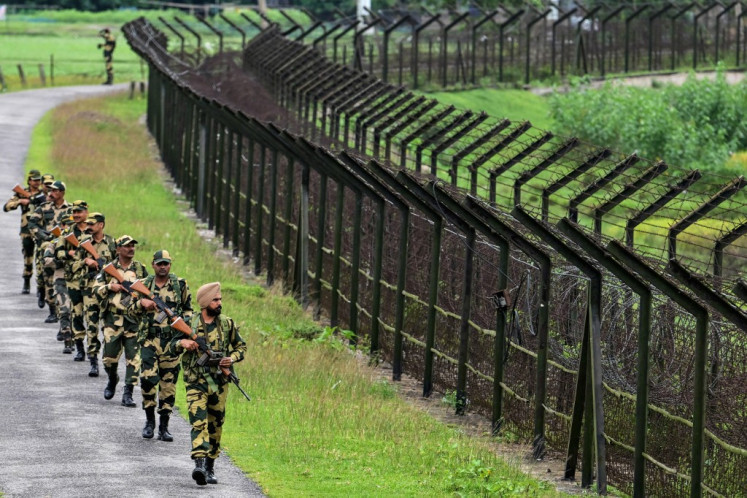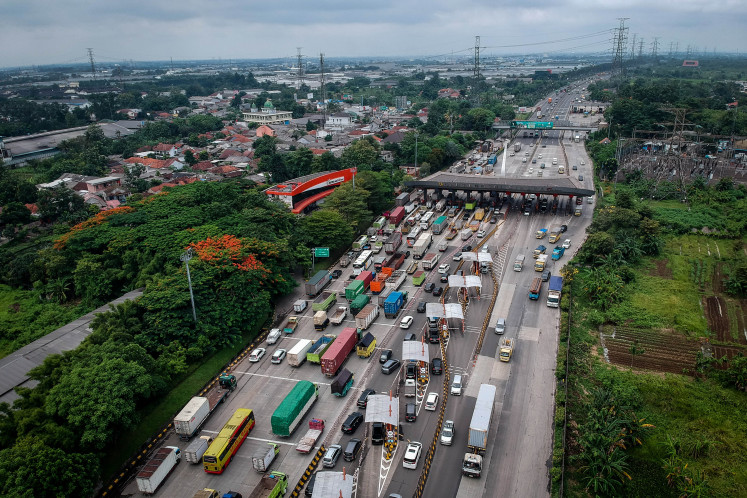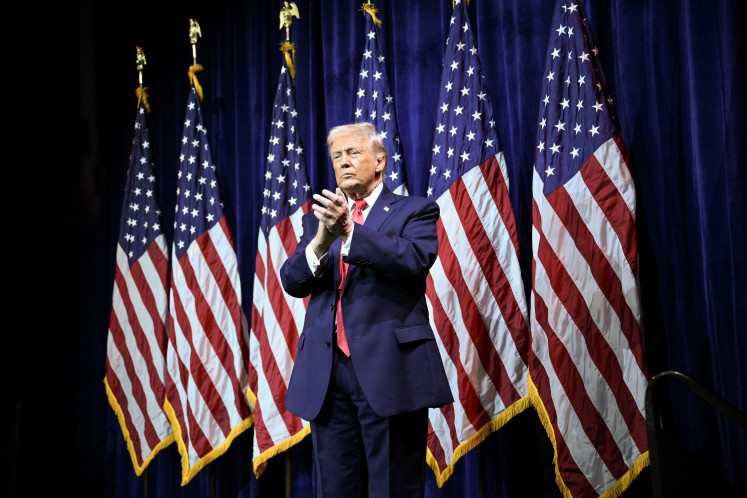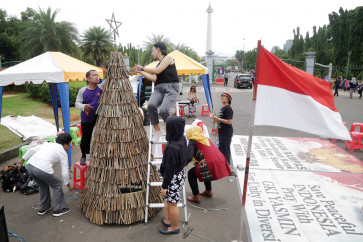Popular Reads
Top Results
Can't find what you're looking for?
View all search resultsPopular Reads
Top Results
Can't find what you're looking for?
View all search resultsIndonesia should lead by example on freedom of religion and belief in ASEAN
Many violations of religious freedom have occurred because intolerant actors feel empowered by a joint ministerial decree issued in 2006 that requires local resident approval for the construction of any new place of worship.
Change text size
Gift Premium Articles
to Anyone
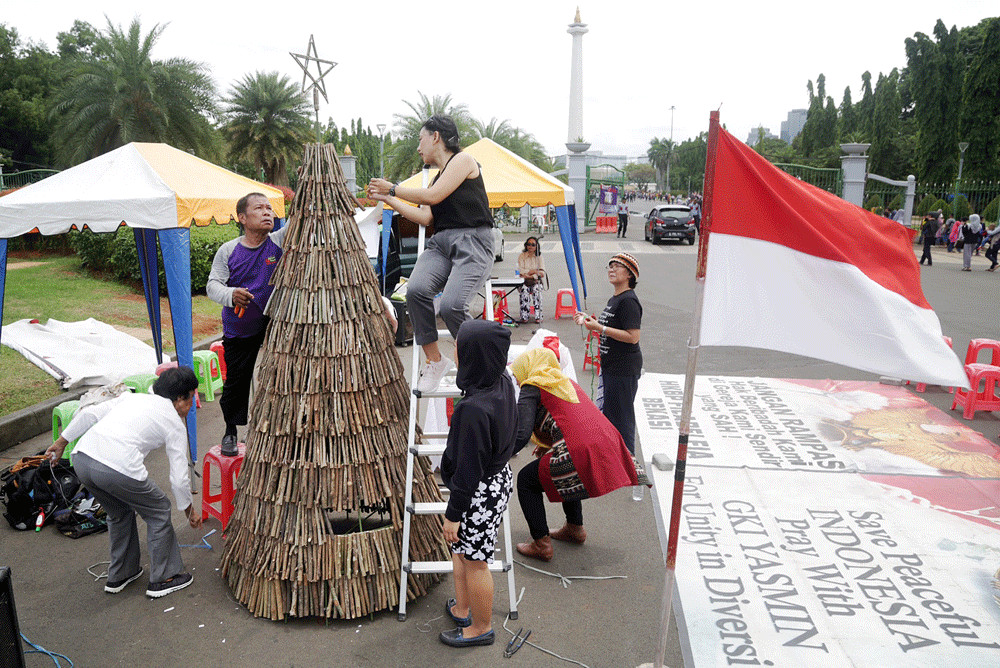 Members of the embattled Protestant Christian church GKI Yasmin congregation make a Christmas tree from dried wooden sticks to celebrate Christmas in front of the State Palace in Central Jakarta on Dec. 26, 2018. The Christmas service added to the total 185 biweekly church services that have been held at the same spot to protest the government’s inaction. Their church building has been sealed by the Bogor administration since 2008. (The Jakarta Post/Wendra Ajistyatama)
Members of the embattled Protestant Christian church GKI Yasmin congregation make a Christmas tree from dried wooden sticks to celebrate Christmas in front of the State Palace in Central Jakarta on Dec. 26, 2018. The Christmas service added to the total 185 biweekly church services that have been held at the same spot to protest the government’s inaction. Their church building has been sealed by the Bogor administration since 2008. (The Jakarta Post/Wendra Ajistyatama)
W
e Indonesians like to take pride in the national motto of Bhinneka Tunggal Ika (unity in diversity). We like to boast that we are a nation of tolerant pluralists, especially at a time when intolerance and exclusivism are on the rise globally
Yet President Joko “Jokowi” Widodo’s recent remarks about the importance of safeguarding freedom of religion and worship during a meeting of regional leaders are a timely reminder that Indonesia still has a long way to go on this front.
Moreover, our country, as the current ASEAN chair and its biggest democracy should play a role in promoting human rights in the region, including freedom of religion and belief. And Indonesia should lead first by setting an example for other countries to follow.
“Religion and worship are guaranteed in our constitution,” Jokowi said during the opening of the National Coordination Meeting of Regional Heads and Regional Leaders Coordination Forums (FKPD) on Jan. 17.
“This must be understood by the military district commander, the National Police chief, the regional police chief, the regional military commander, it must be understood by the Prosecutor's Office and the Attorney General's Office,” he added, sending a strong message to local administrations and other regional institutions to ensure people's right to worship, regardless of their religion or belief, as mandated by Article 29 of the Constitution.
The issue of religious freedom at the regional level is a fraught one, as shown in various studies. PUSAD Paramadina researcher, Siswo Mulyartono, found at least 122 cases of local communities resisting the construction of houses of worship from 2015 to 2020, while human rights group Setara Institute recorded at least 573 disruptions to worship and places of worship across the country between 2007 and 2022.
What Jokowi failed to mention is the central government’s complicity in these violations of religious freedom. Many of these disturbances have occurred because intolerant actors feel empowered by a joint ministerial decree issued in 2006 that requires local resident approval for the construction of any new place of worship. All too often, this becomes an issue when minority religious communities look to build temples, churches or mosques in areas where residents are predominantly of another faith.





